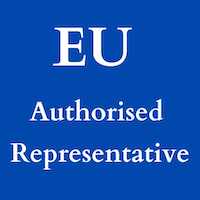TRPR
TRPR Laws in the UK
The TPD lays down the overarching vape laws for all EU countries (all 27 of them). Each government then writes their own national legislation based on the laws of the TPD. In the UK, the national legislation is called the TRPR – the Tobacco & Related Products Regulations 2016.
But when governments create national legislation i.e transposed from the TPD – they do not have to adhere to the TPD word for word. In some areas, they can deviate from its laws.
Here we look at how the UK has deviated from the TPD laws – these are the so called TRPR laws.
TRPR Laws
General & Notification Requirements
| TPD | Has it been directly transposed into the TRPR (UK law)? |
| Paragraph 1 The Member States shall ensure that electronic cigarettes and refill containers are only place do nt he market if they comply with this Directive and with all other relevant Union legislation. This Directive does not apply to electronic cigarettes and refill containers that are subject to an authorisation requirement under Directive 2001/83/EC or to the requirements set out in Directive 93/42/EEC. | Yes. Note: Directive 2001/83/EC and Directive 93/42/EEC refer to requirements for the registration of medicines and medical devices prior to sale. |
| Paragraph 2 Manufacturers and importers of electronic cigarettes and refill containers shall submit a notification to the competent authorities of the Member States of any such products which they intend to place on the market. The notification shall be submitted in electronic form six months before the intended placing on the market. | Yes with an deviation. Rather than adopting the 6 month rule, the MHRA allows the sale of a notified product once it appears on the list of notified products on the MHRA website (approx. 6 weeks from notification submission). (This information is presented in guidance documents not the TRPR) |
| Member States may charge manufacturers and importers proportionate fees for receiving, storing, handling and analysing the information submitted to them. | The MHRA has set fees at £150 per notification with an annual fee of £80 (again, this information is not described in the TRPR). |
Product Characteristics & Packaging Requirements
| TPD | Has it been directly transposed into the TRPR (UK law)? |
| Paragraph 3 Member States shall ensure that: (a) nicotine-containing liquid is only placed on the market in dedicated refill containers not exceeding a volume of 10 ml, in disposable electronic cigarettes or in single use cartridges and that the cartridges or tanks do not exceed a volume of 2 ml; (b) the nicotine-containing liquid does not contain nicotine in excess of 20 mg/ml; (c) the nicotine-containing liquid does not contain additives listed in Article 7(6); [excerpt only] | Yes |
| Paragraph 4 Member States shall ensure that: (a) unit packets of electronic cigarettes and refill containers include a leaflet with information on: (i) instructions for use and storage of the product, including a reference that the product is not recommended for use by young people and non-smokers; (ii) contra-indications; (iii) warnings for specific risk groups; (iv) possible adverse effects; (v) addictiveness and toxicity; and (vi) contact details of the manufacturer or importer and a legal or natural contact person within the Union; | Yes with a deviation (see below). |
| Paragraph 4 (cont.) (b) unit packets and any outside packaging of electronic cigarettes and refill containers: (i) include a list of all ingredients contained in the product in descending order of the weight, and an indication of the nicotine content of the product and the delivery per dose, the batch number and a recommendation to keep the product out of reach of children; (ii) without prejudice to point (i) of this point, do not include elements or features referred to in Article 13, with the exception of Article 13(1)(a) and (c) concerning information on the nicotine content and on flavourings; and | Deviation: In most cases, the nicotine delivery per dose is not required on e-liquid packaging. |
Health Warning Requirements
| TPD | Has it been directly transposed into the TRPR (UK law)? |
| Paragraph 4 (cont.) (iii) carry one of the following health warnings: ‘This product contains nicotine which is a highly addictive substance. It is not recommended for use by non- smokers’. or ‘This product contains nicotine which is a highly addictive substance.’ Member States shall determine which of these health warnings is to be used; | Specific to UK: The TRPR states the latter: ‘This product contains nicotine which is a highly addictive substance.’ |
| Article 12 Paragraph 2 The health warning laid down in paragraph 1 shall comply with the requirements specified in Article 9(4). The text of the health warnings shall be parallel to the main text on the surface reserved for these warnings. | Yes with a deviation (see below). |
| Paragraph 2 (cont.) In addition, it shall: (a) appear on the two largest surfaces of the unit packet and any outside packaging; | Deviation: According to the TRPR, the health warning should “appear on both the front and back surfaces of the unit packet and any container pack” |
| Paragraph 2 (cont.) (b) cover 30 % of the surfaces of the unit packet and any outside packaging. That proportion shall be increased to 32 % for Member States with two official languages and 35 % for Member States with more than two official languages. | Specific to UK: English is the only official language so the warning should cover 30% of the surfaces (front and back). |
What are the steps in the process to introduce the TPD into UK law?
The following steps detail the process for creating the TRPR from the TPD rules:
Step 1:The relevant UK government department consults with government stakeholders.
Step 2: The department identifies the aims of the TPD and Article 20 and the relevant UK policies, and how the two will be brought into harmony so that transposition does not go beyond the minimum requirements of the TPD or create unintended consequences or an unnecessary risk of infraction in the UK.
Step 3: The department writes to the Reducing Regulation Committee (RRC) and Secretaries of State for any other affected departments detailing its intended plan for transposition.
Step 4: The department carries out a consultation to seek the views of industry stakeholders on the options for transposition, taking into account the RRC’s responses to the initial project plan, and including an impact assessment.
Step 5: The department revises plans for transposition according to the results of the consultation and seeks Cabinet Committee clearance for all consultation documents.
Step 6: The department completes plans for transposition, ensuring all steps are complete before the legal deadline set in the EU legislation, and notifies the European Commission once complete.
Can the UK disregard the TPD laws?
The UK and other member states can’t ignore the TPD regulations, but they can challenge them if they doubt the EU’s legitimacy in making them. If the challenge was valid – for example, if a rule did not meet the objectives of the Treaty on European Union (TEU) – then the UK courts may be able to suspend its implementation.
What would happen if the UK government didn’t transpose the TPD?
Failure to transpose the TPD into UK law by the EU’s deadline could have resulted in action against the UK government in both national and European courts.
Under the TEU, the European Commission can bring infraction proceedings before the European Court of Justice if a member state doesn’t comply. If the member state fails to correct the infraction, the Commission may take further action by either charging a lump sum or fining the member state on an ongoing basis. The UK has not yet had such an action brought against it.
FAQ
In the UK, are electronic cigarettes and refill containers regulated under the TRPR?
Yes, electronic cigarettes and refill containers on the UK market are regulated under the TRPR. This excludes products requiring authorisation under Directive 2001/83/EC or Directive 93/42/EEC (medicines and medical devices).
What is the notification process for placing electronic cigarettes and refill containers on the market in the UK?
Manufacturers and importers must notify the MHRA about products they intend to market. While the TPD requires a 6-month notification period, the MHRA allows sale after the product appears on their notified products list, roughly 6 weeks after notification.
Are there fees associated with the notification of electronic cigarettes and refill containers in the UK?
Yes, the MHRA charges £150 per notification. There is currently no annual fee (2024). This fee structure is not detailed in the TRPR but is provided in guidance documents.
What are the volume and nicotine content restrictions for nicotine-containing liquids under the TRPR?
Nicotine-containing liquids must be sold in refill containers not exceeding 10 ml, disposable electronic cigarettes (to be banned), or single-use cartridges, with tanks not exceeding 2 ml. The nicotine content cannot exceed 20 mg/ml, and certain additives are prohibited.
What information must be included with electronic cigarettes and refill containers according to the TRPR?
Packaging must include a leaflet with usage instructions, contra-indications, warnings for risk groups, potential adverse effects, addictiveness, toxicity, and manufacturer contact details. Packaging deviations include not always requiring the nicotine delivery per dose.
What health warnings are required on electronic cigarette packaging in the UK?
The TRPR mandates the health warning: “This product contains nicotine which is a highly addictive substance.” This differs from the TPD, where Member States can choose between two warnings.
How must health warnings be displayed on packaging according to the TRPR?
Health warnings must appear on the front and back.
Contact us
Get in touch to learn about our TRPR Services.
About Medic Pro
What We Do
We are a London-based regulatory affairs consultancy providing services to the e-cigarette, cosmetic, biocide, pharmaceutical and medical device industry. We help e-cigarette companies comply with the Tobacco Products Directive and pharmaceutical companies obtain and maintain medical product licences. We also offer UKAS accredited biocide and analytical testing services.

